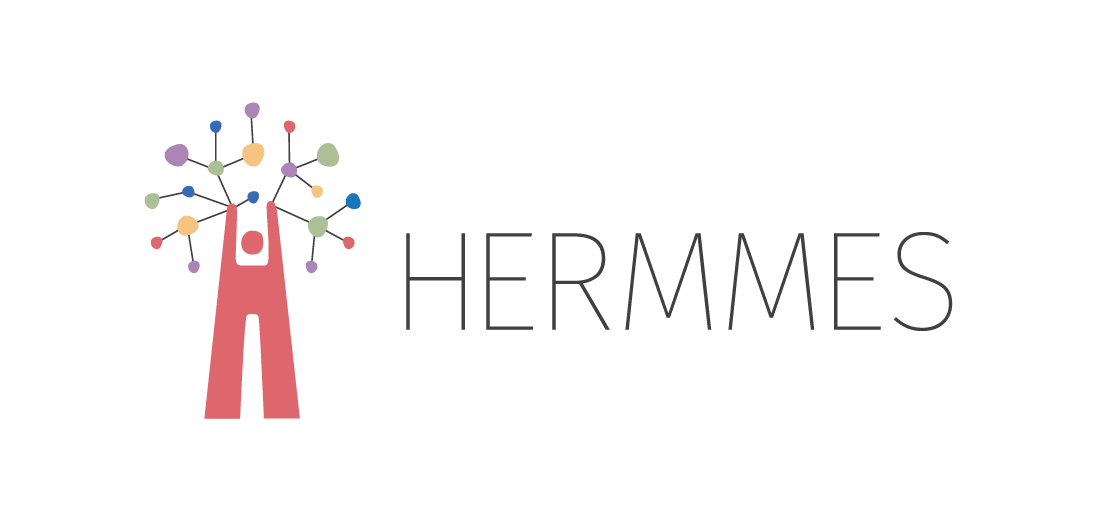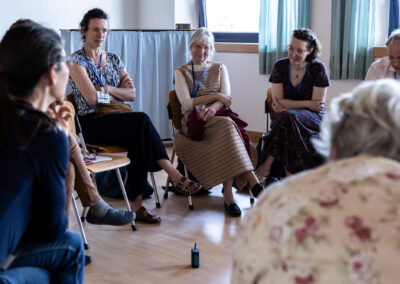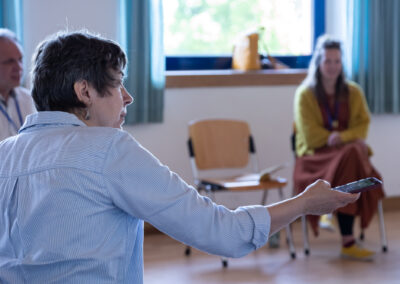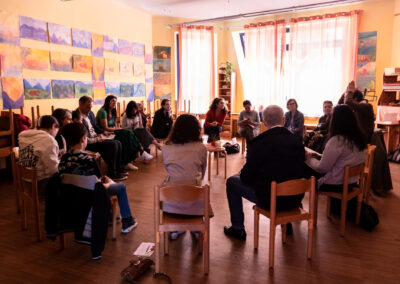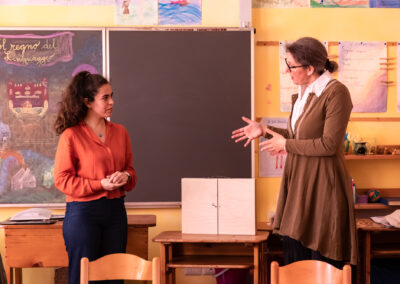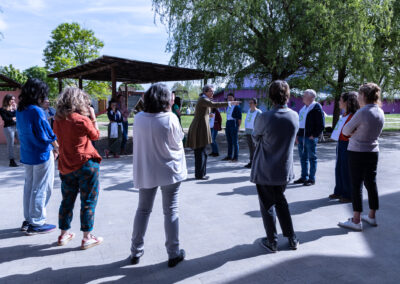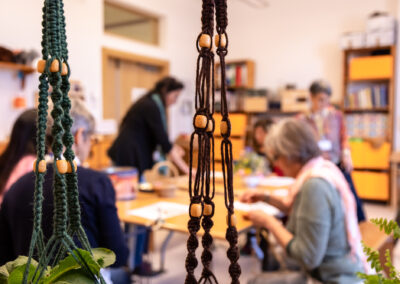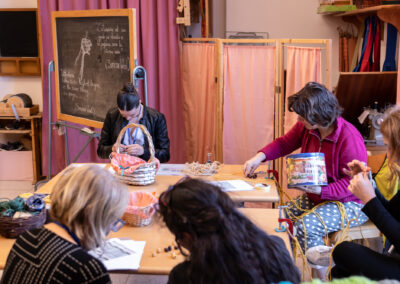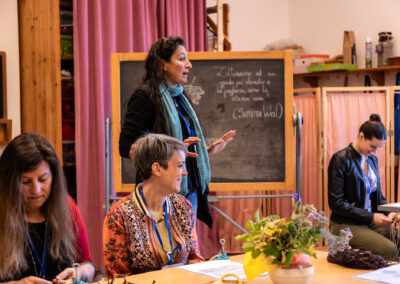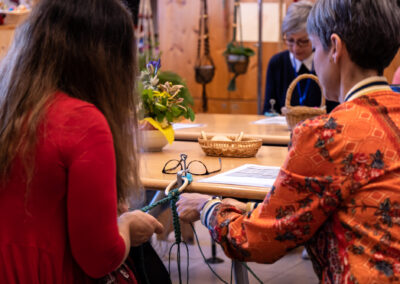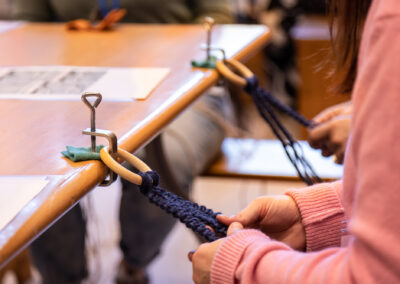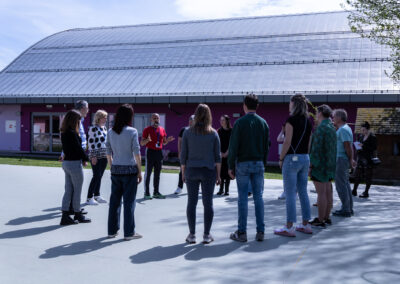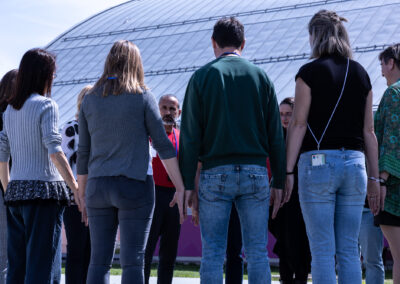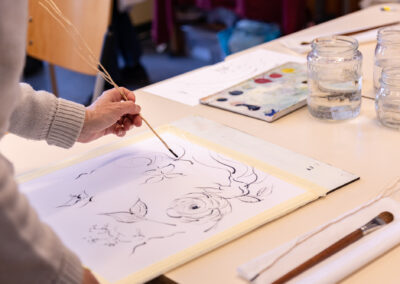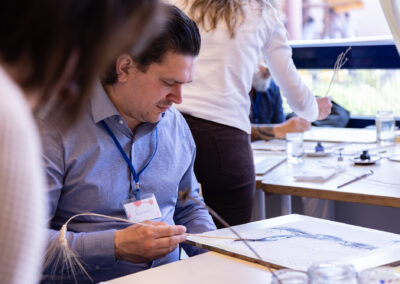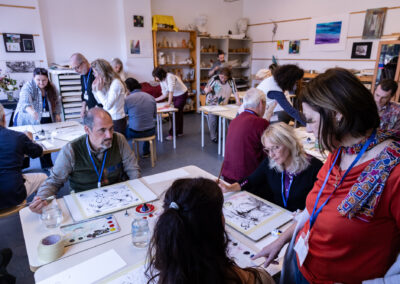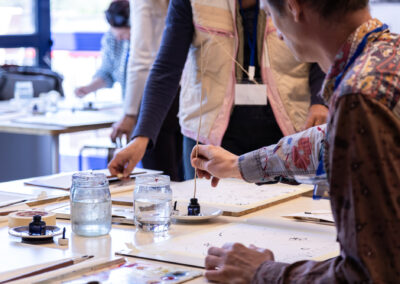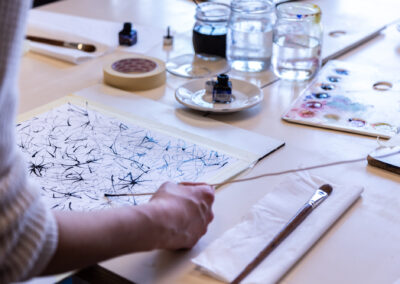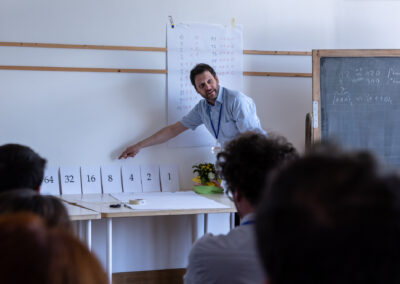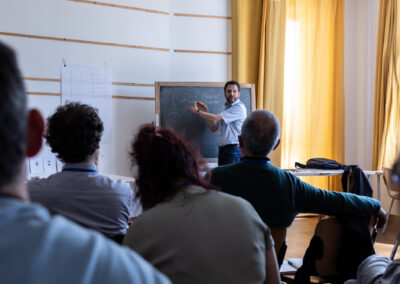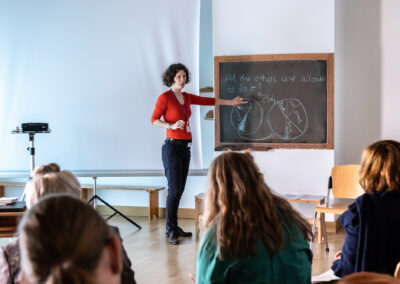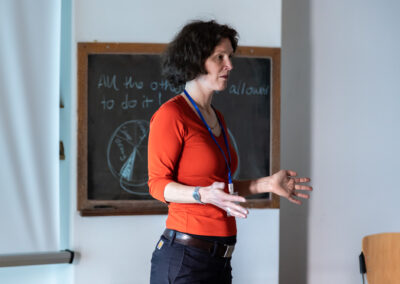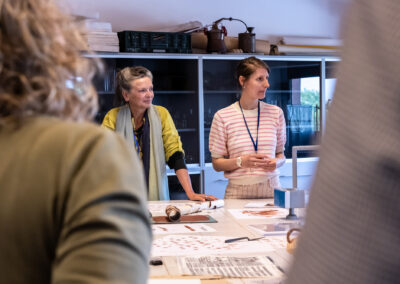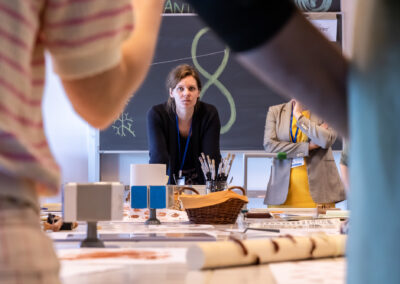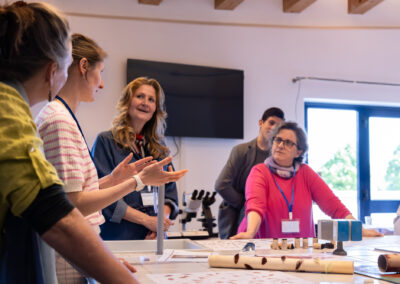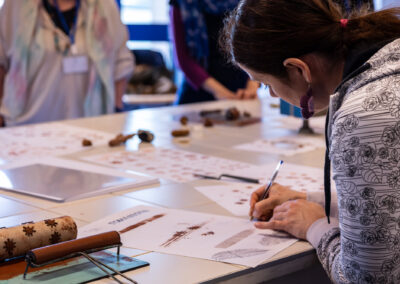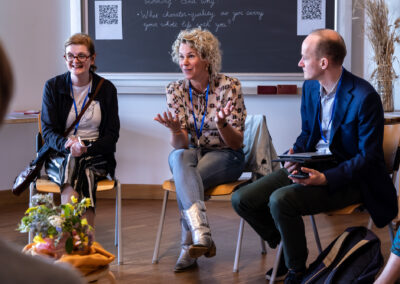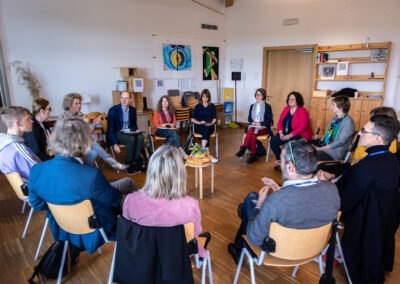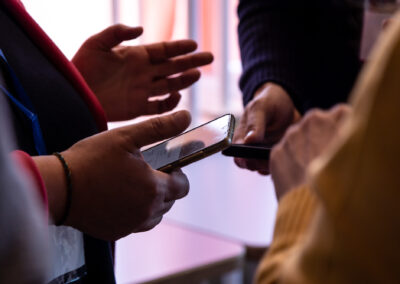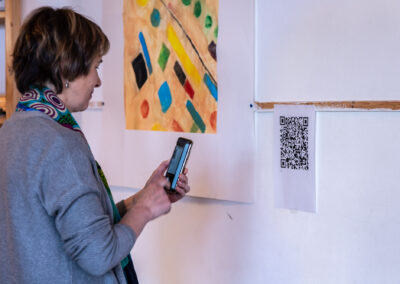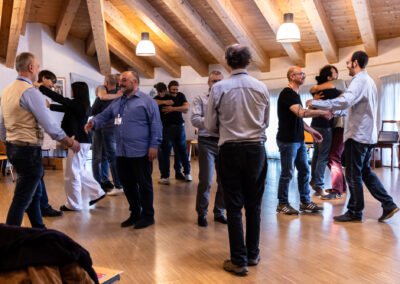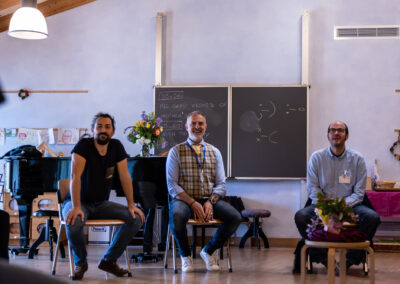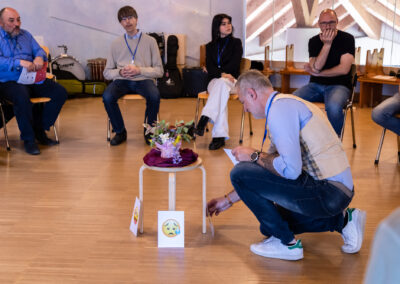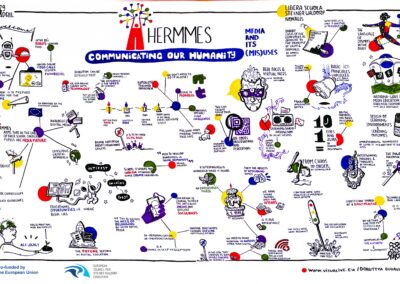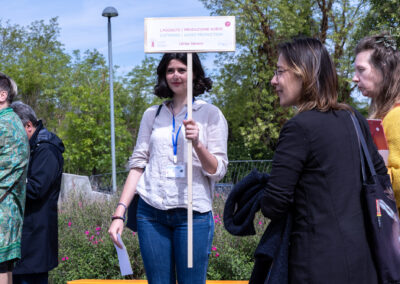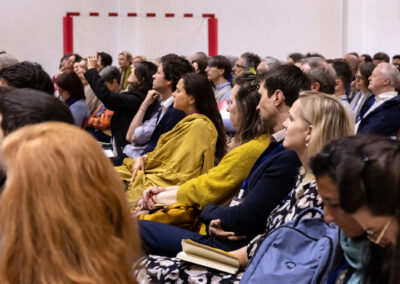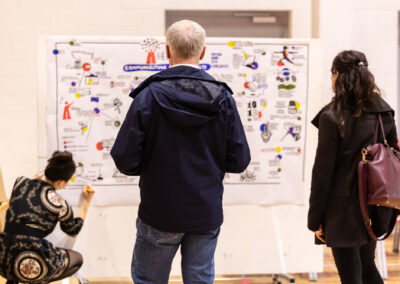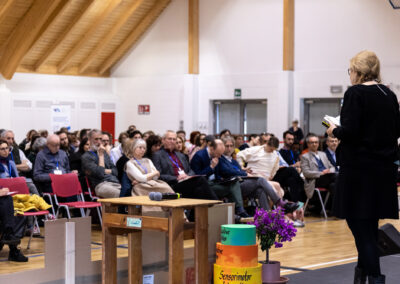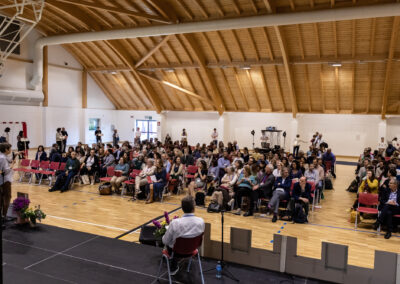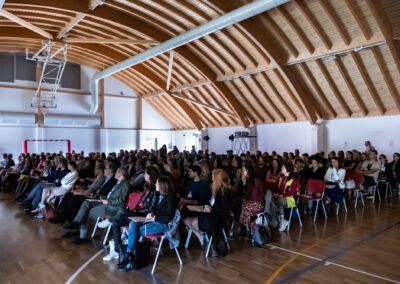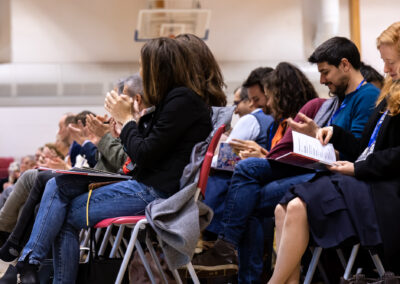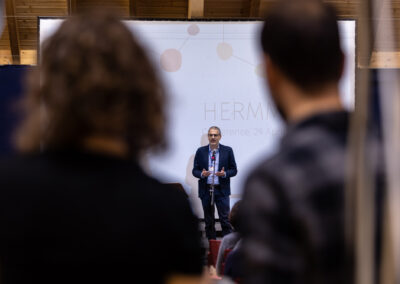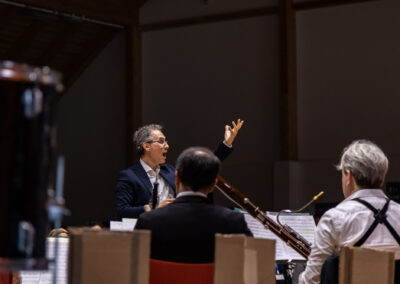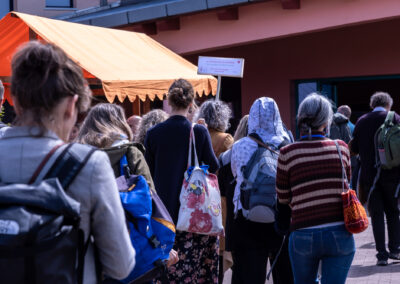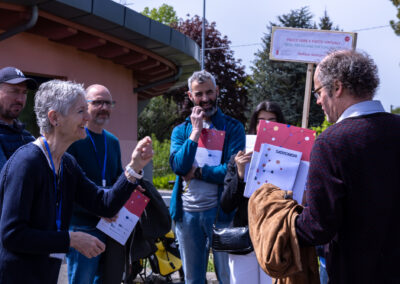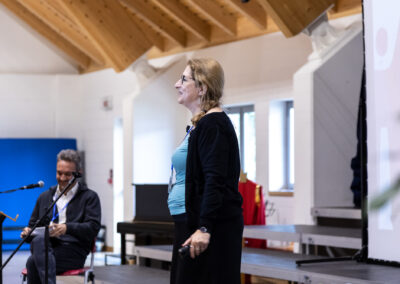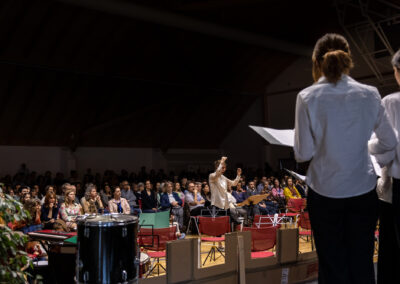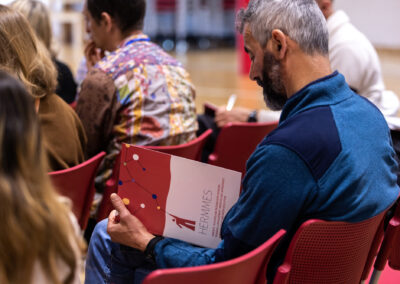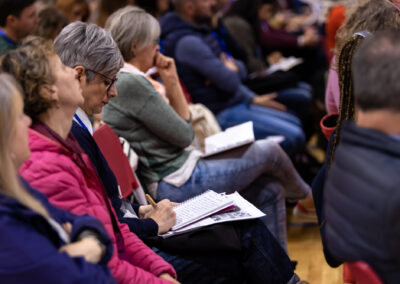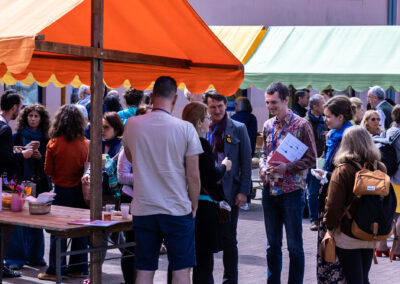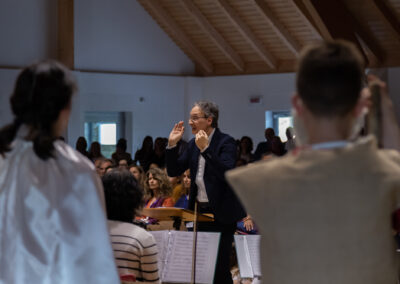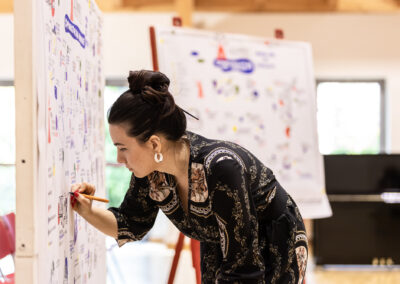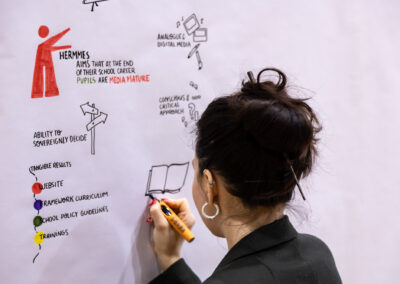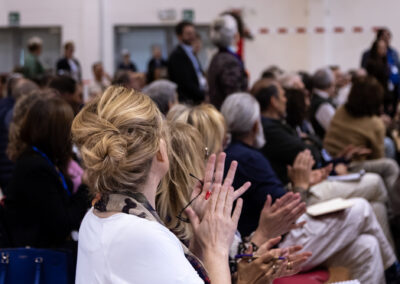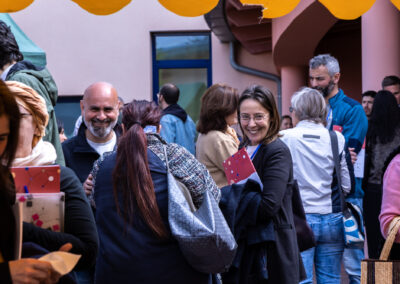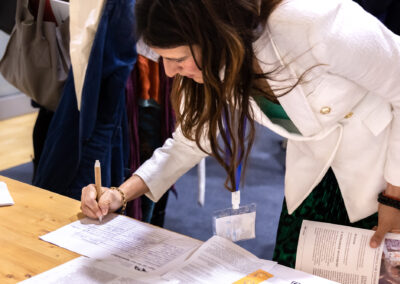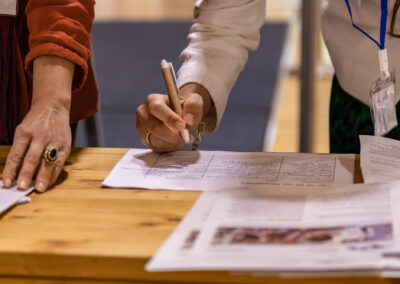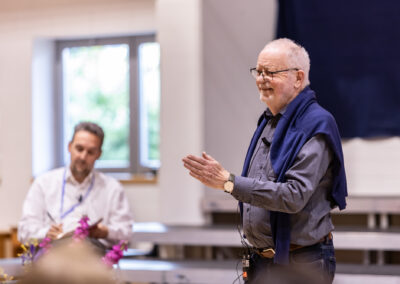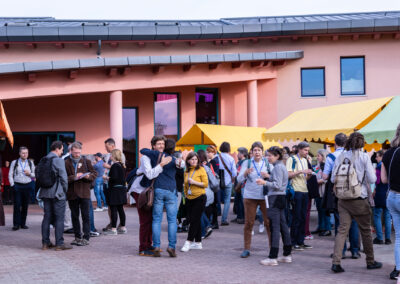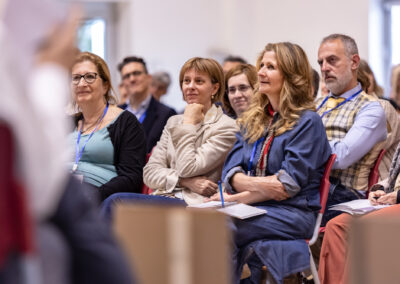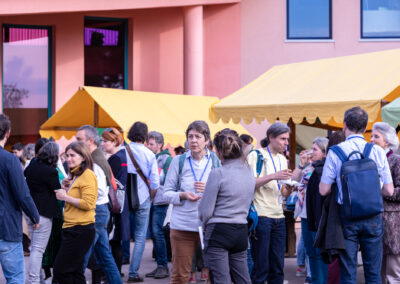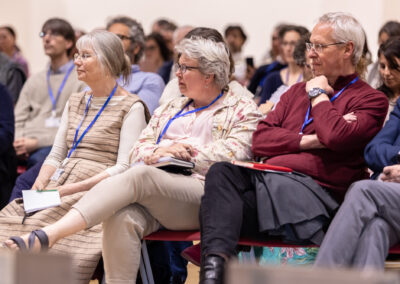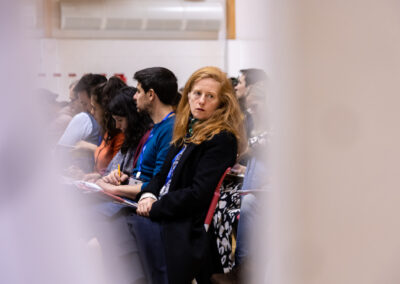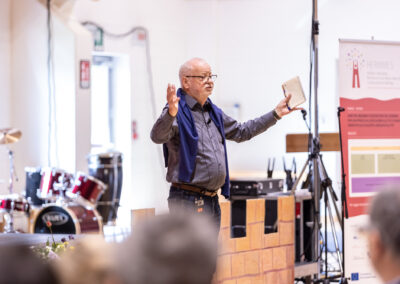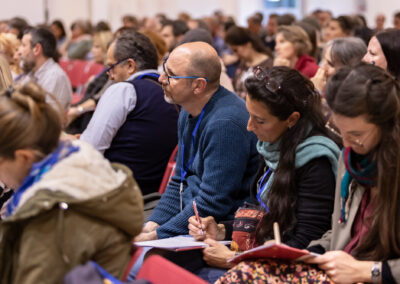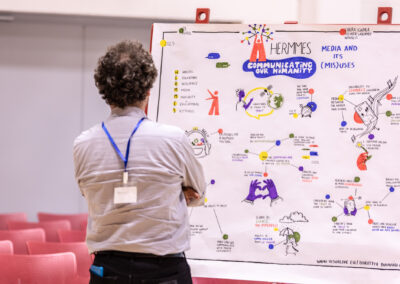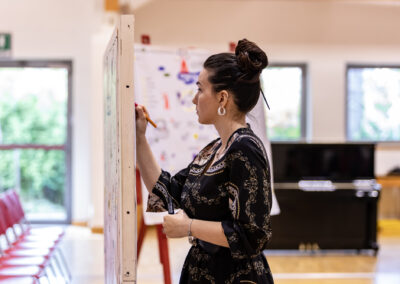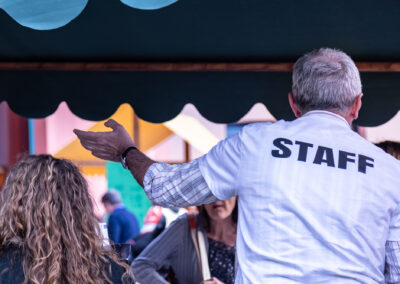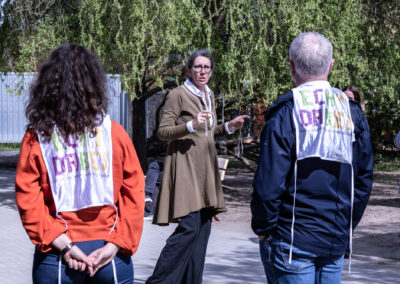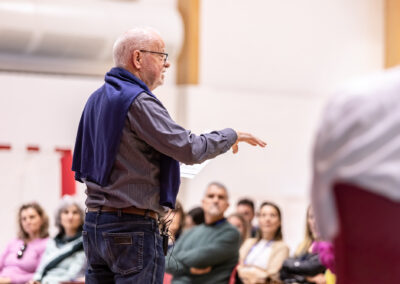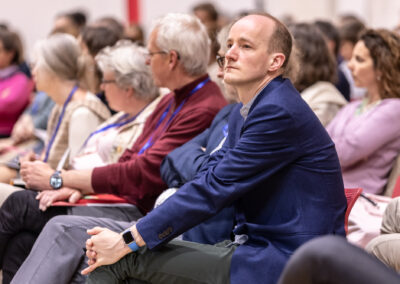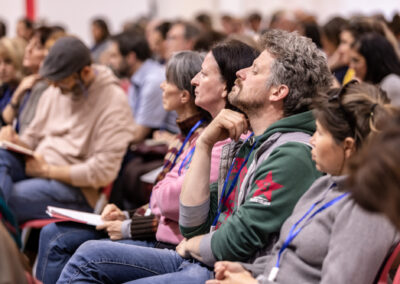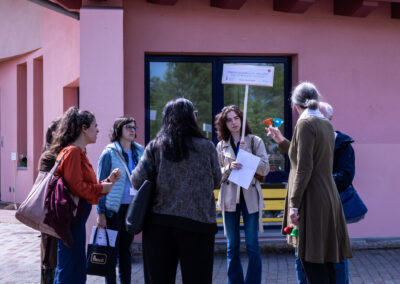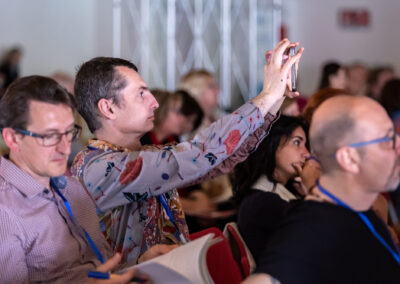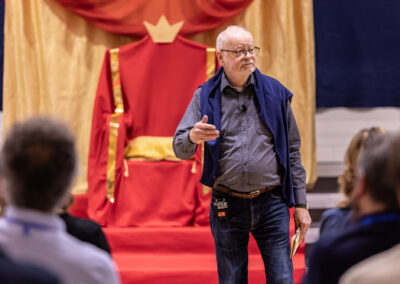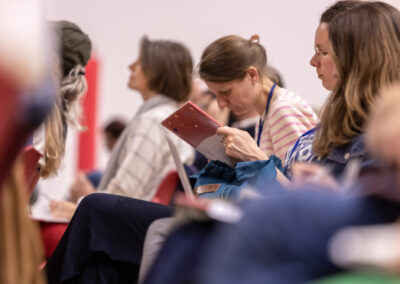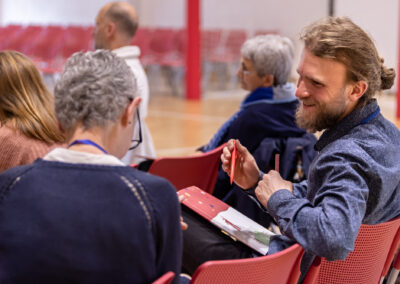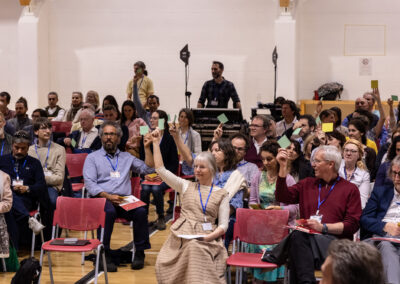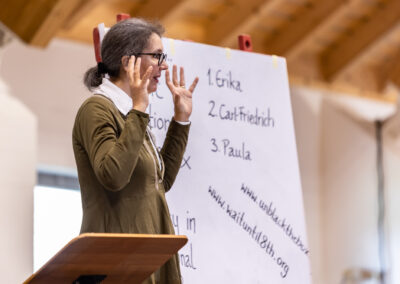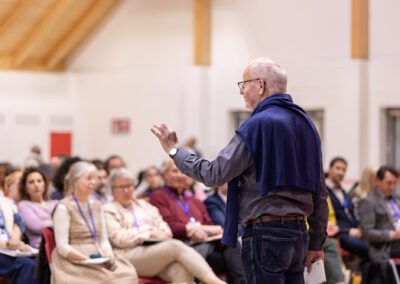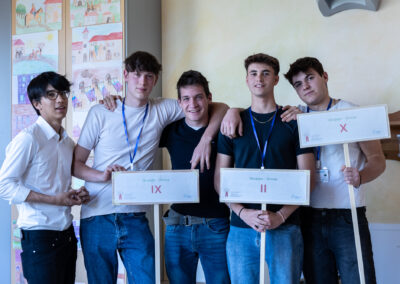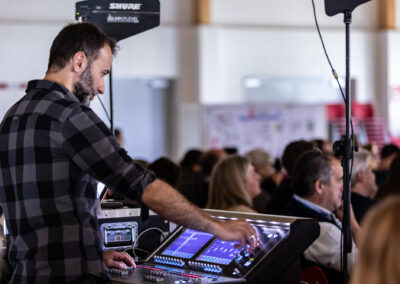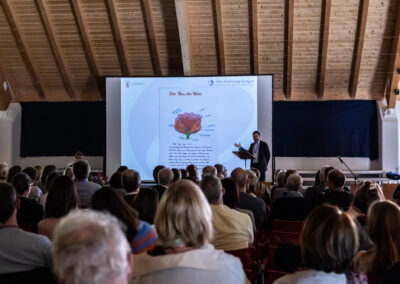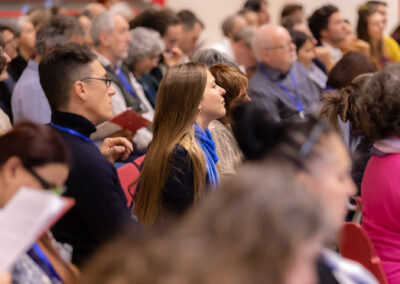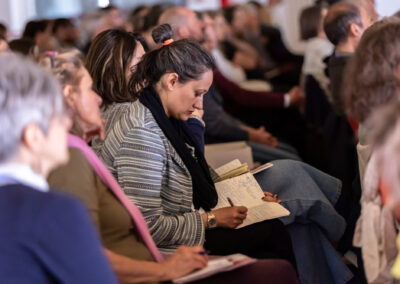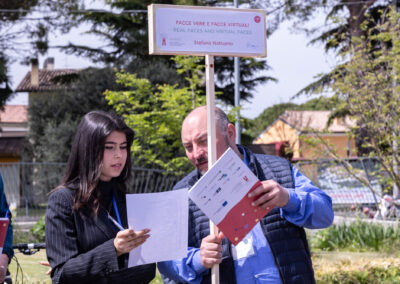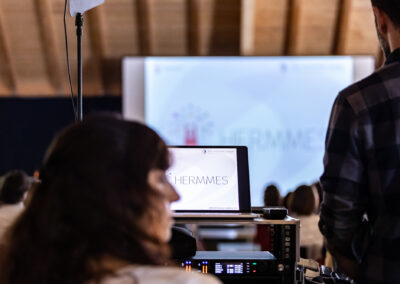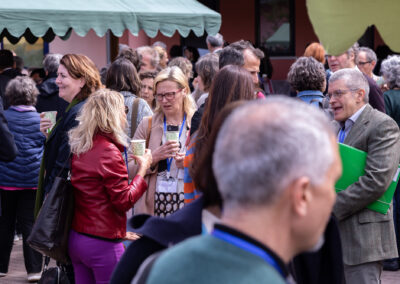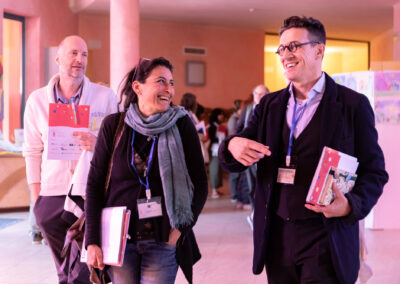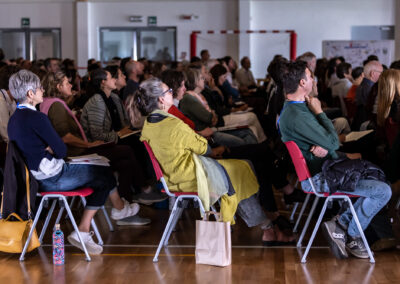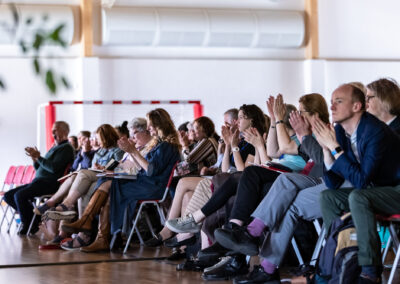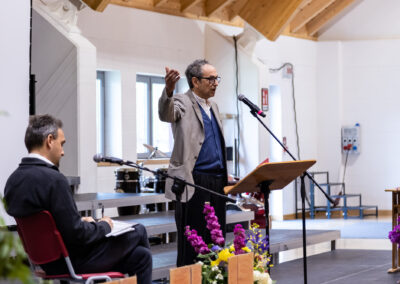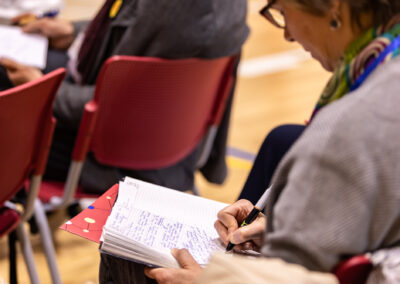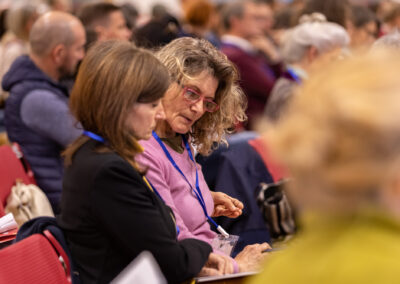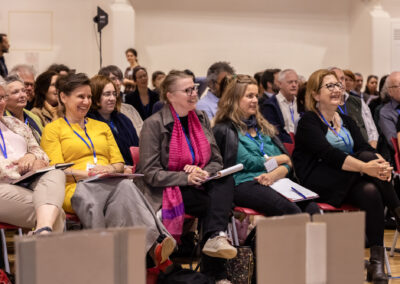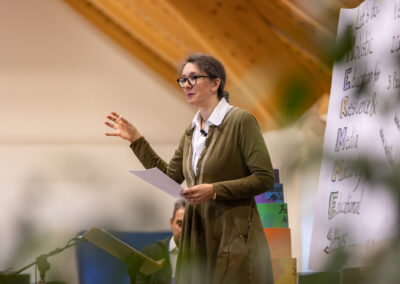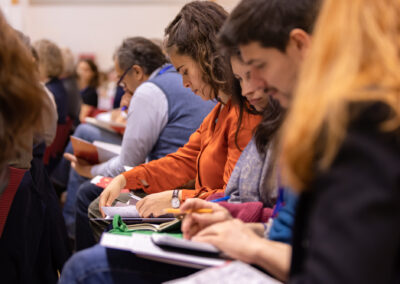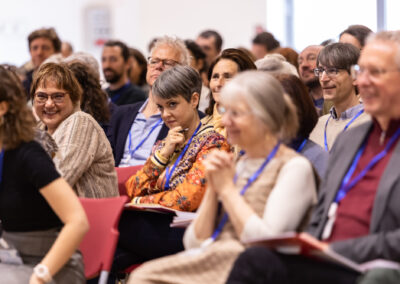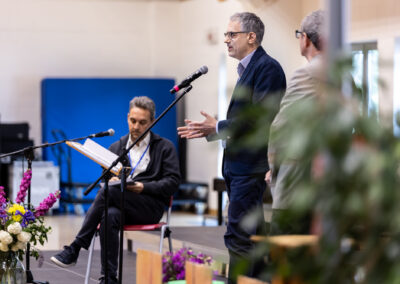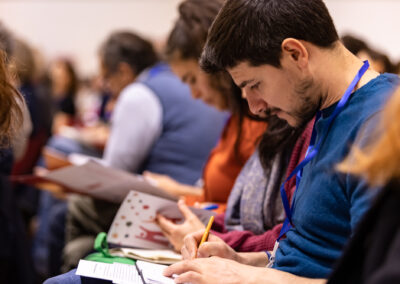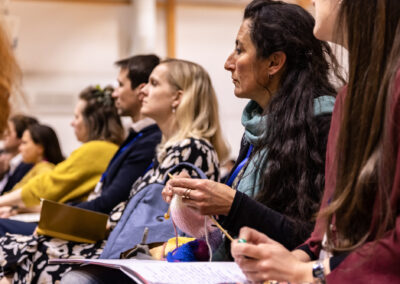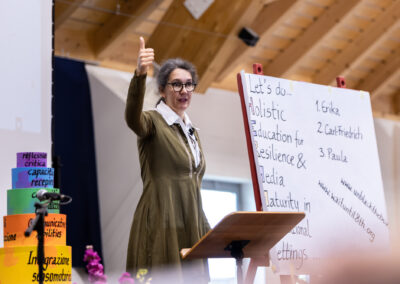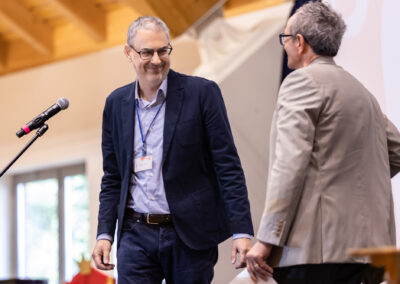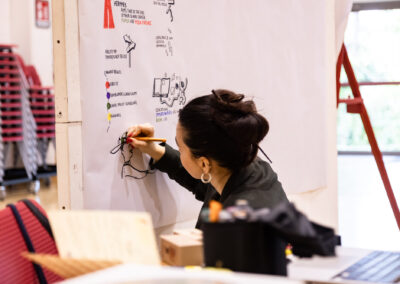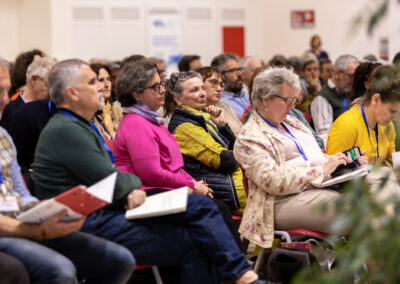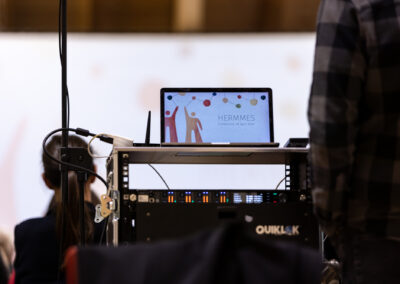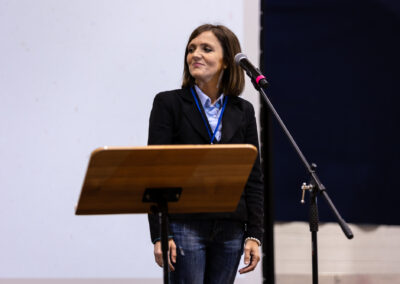
- This event has passed.
Communicating Our Humanity: Media and Its (Mis)Uses
April 29, 2023
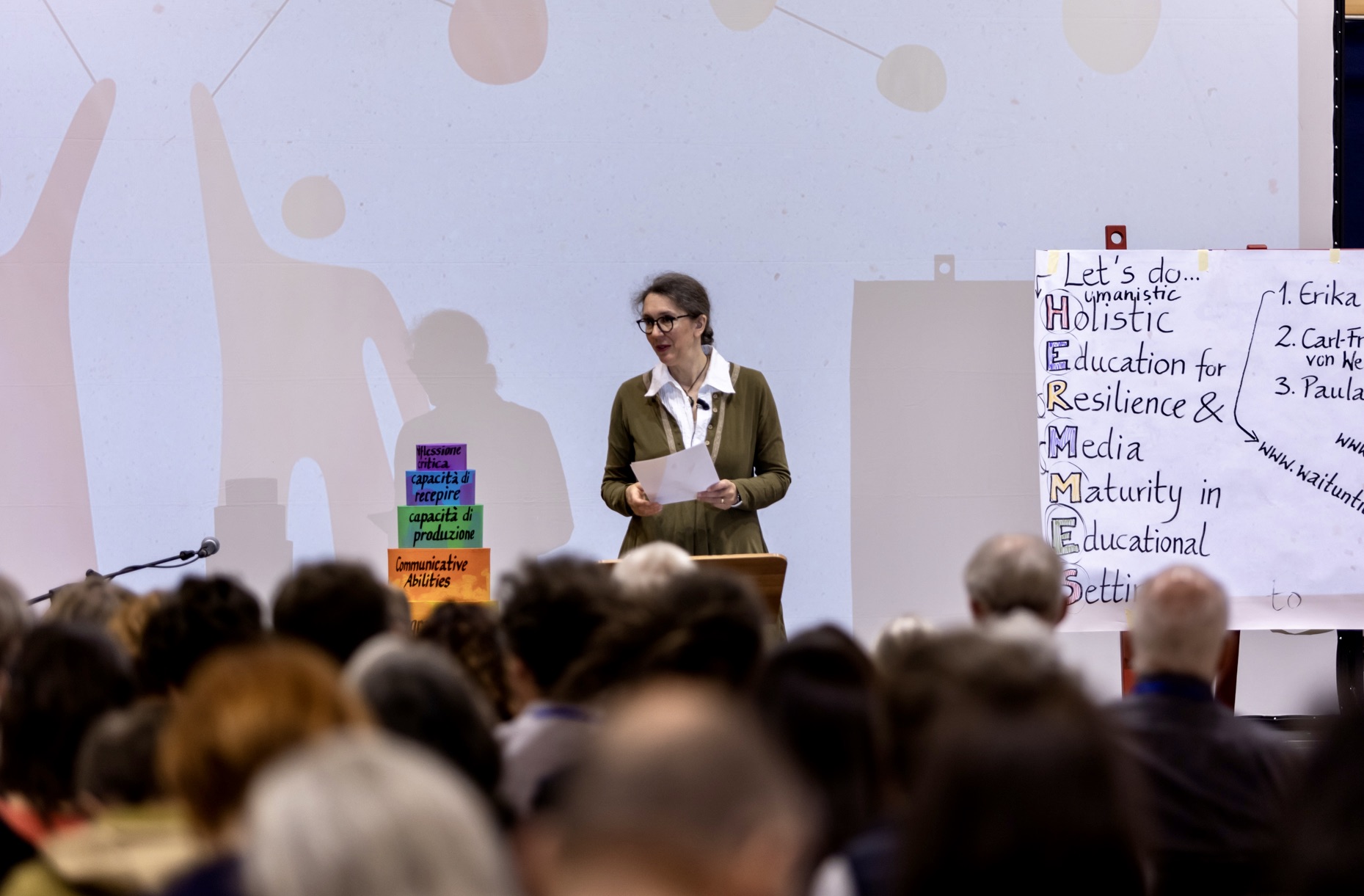
After one year of the HERMMES project, on the 29th April 2023, our first multiplier conference brought together over 200 parents, teachers and school leaders eager to learn from one another about how media education can serve to uplift children in their humanity.
What brings us to research media education?
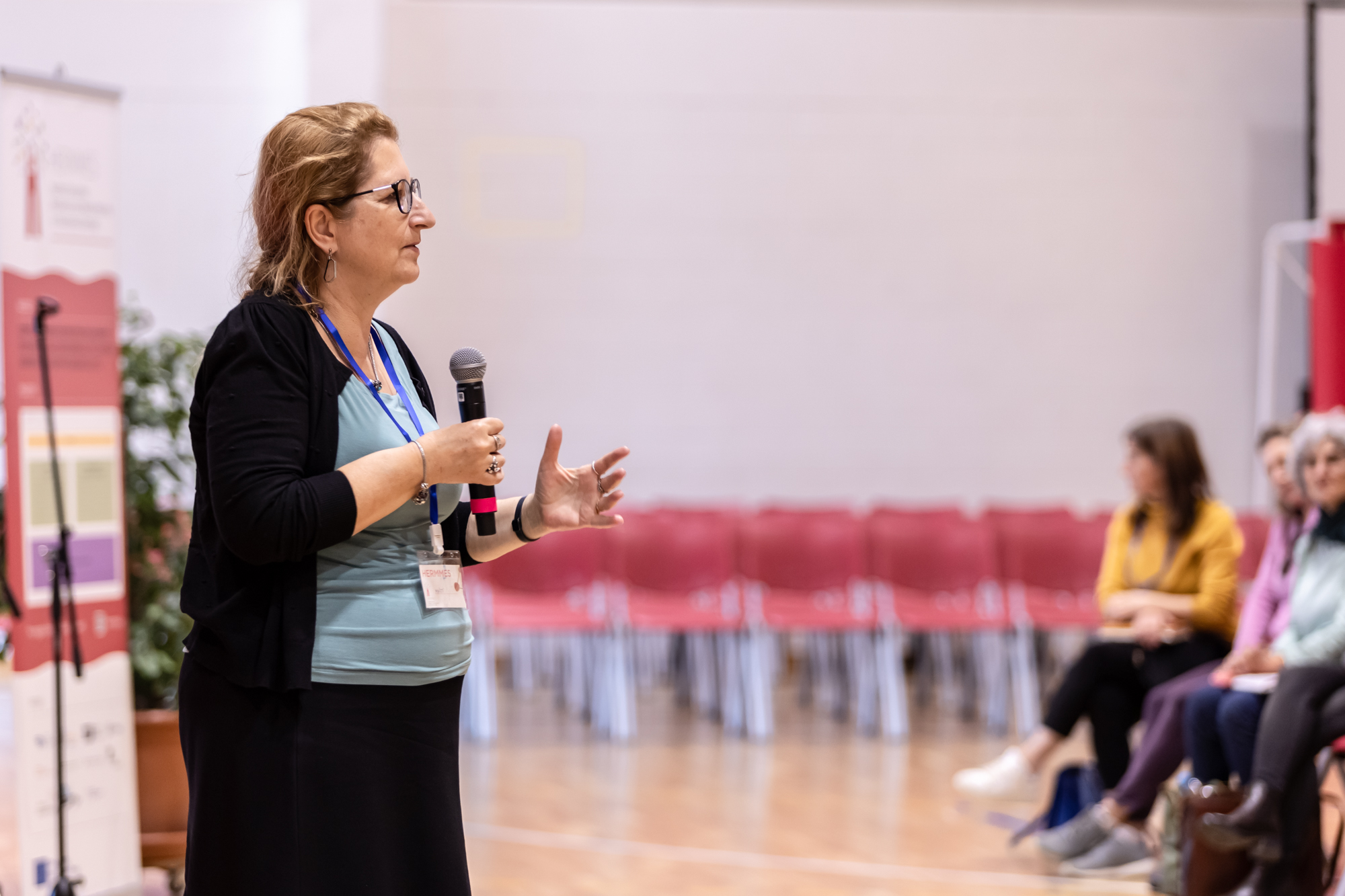
In her welcoming speech, HERMMES coordinator Márti Domokos reflected on that as an avid reader of sci-fi as a child, she has seen fantastic-seeming technological developments become reality in the previous few decades of her lifetime. And while her generation experienced step-by-step digital development, children today face digital media from their birth. This comes with risks to their healthy development. She highlighted that the HERMMES project exists to remind us of our responsibility to allow children real-life experiences as preparations for their media use, by offering adults tools for the healthy development of children in a world that intertwine real and digital experiences.
Representing ENSWaP, Christopher Clouder explained thoughts behind the title of the conference. He shared how digital technology, and especially social media, reaches its purpose if it is helping us communicate our humanity, and not if it takes away from it. He pointed out how it is the task of adults to provide as many opportunities as possible for children to get in touch with and to develop their humanity, which is best done when observing nature and in real-life social interactions. Only after a child has settled in their humanity, are they ready to enter digital environments and use digital tools to their own benefit and the benefit of society.
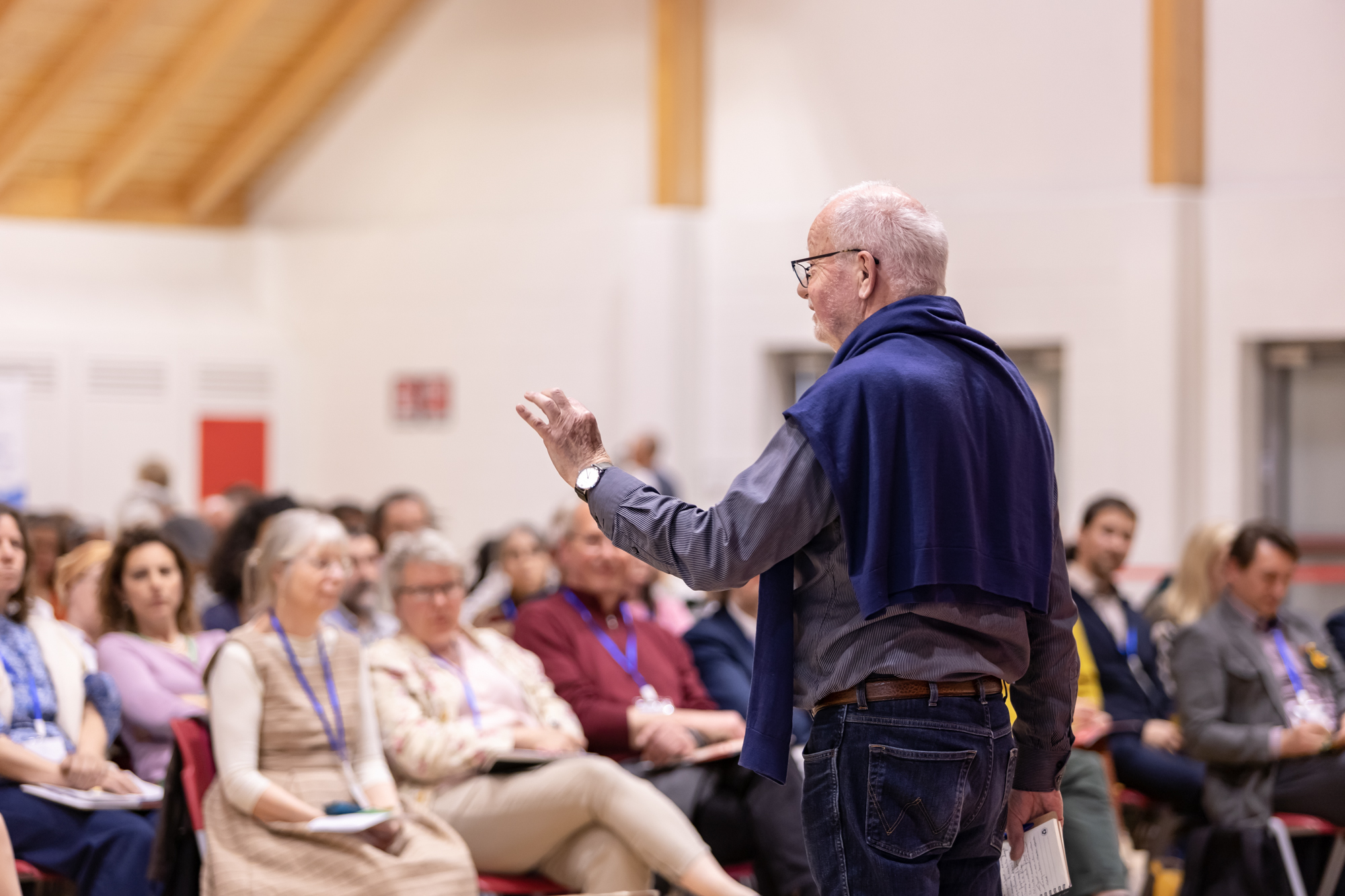
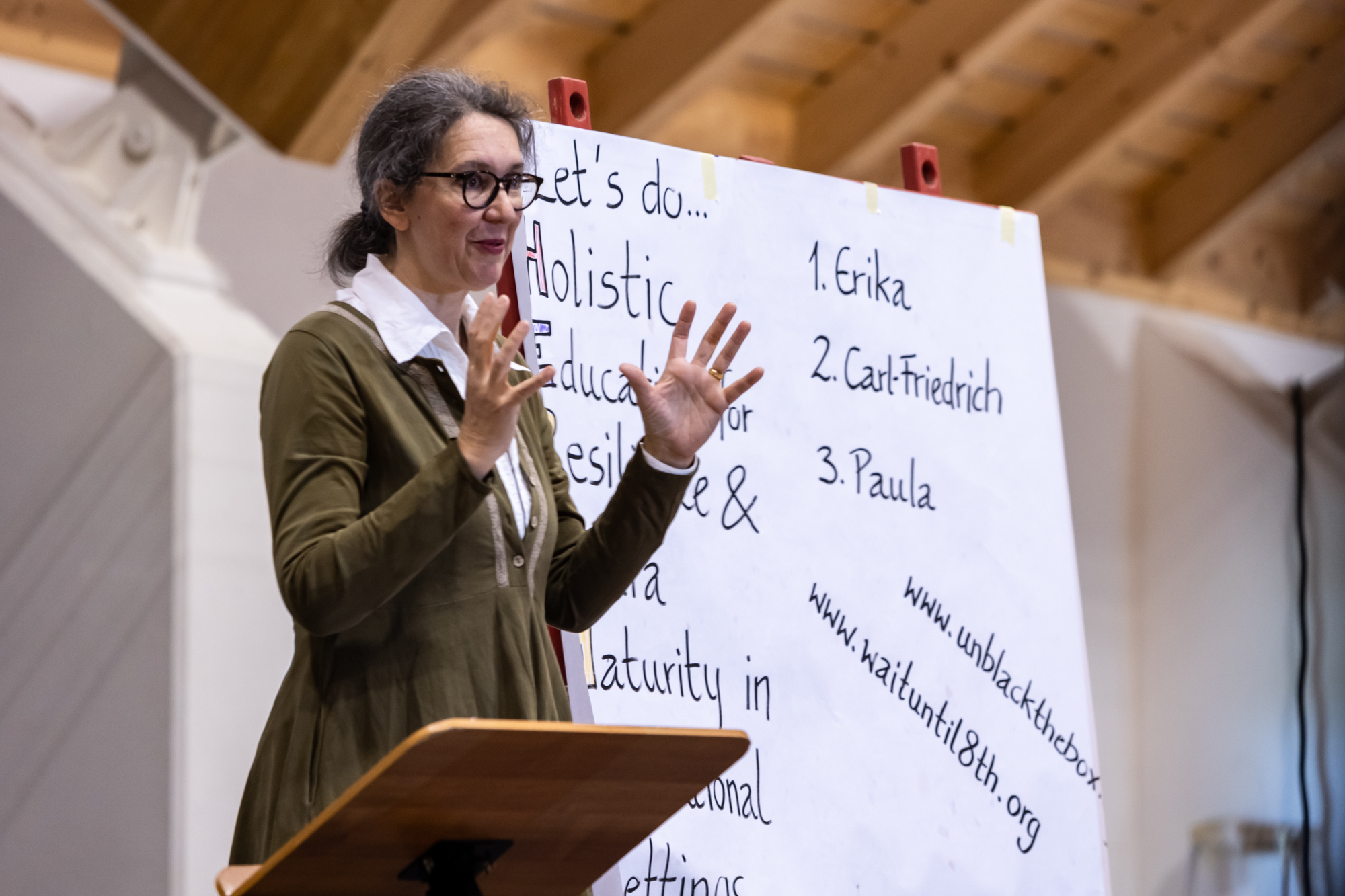
Prof. Dr Paula Bleckmann from Alanus University told a story from her own experience, comparing the diverse circumstances of 9-year-olds of three generations – her grandmother, her mother, and herself. She made the point that even though in today’s world we have many possibilities and tools available to us, it does not mean that all of those will help our children develop in a healthy manner. Compared to the technology available in the first half of the last century, the task of today’s parents and educators is not to enable their children to access as many technologies as possible, but almost the opposite: to know why, when and how to create boundaries and say “no”.
In his speech, Dr Robert Neumann from the Freie Hochschule Stuttgart also derived his message from the historic experience: the social phenomenon of welcoming new technologies. He explained how firstly, there is excitement and eagerness to use new technologies. Secondly, the criticism arrives, founded in research and errors in the user experience, often followed by unwanted side-effects of such use. Concerning digital technology, he believes our task now is to enter the third stage, which brings balanced use of technology: the use that avoids risks and reaches the benefits. He believes that the HERMMES project contributes to achieving this balance.
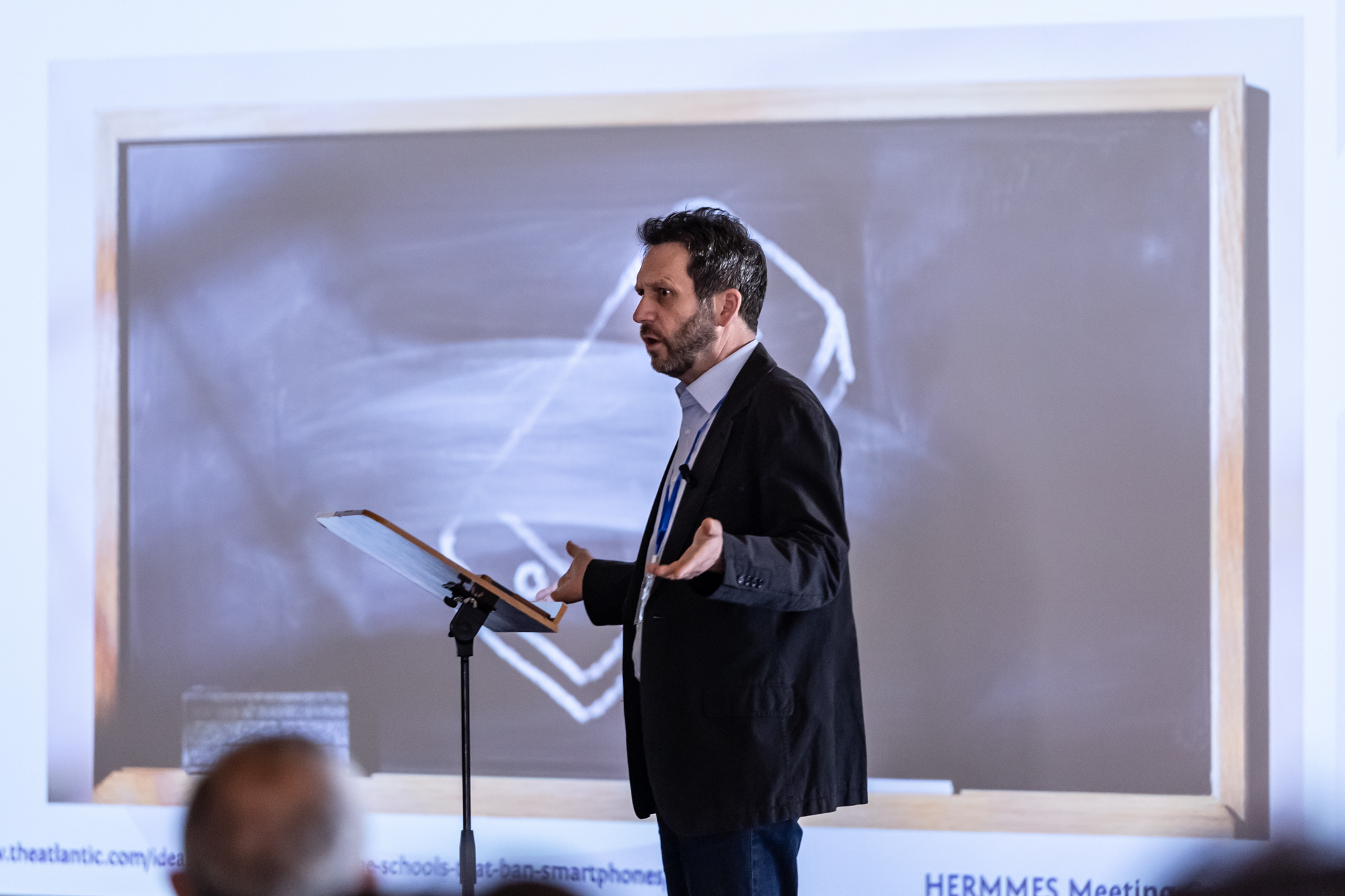
12 workshops exploring analogue and digital media use
Next to the insightful and uplifting plenary speeches, participants had the chance to attend one of twelve workshops provided by the HERMMES partners.
Real faces and virtual faces with Stefano Notturno
The participants experimented with the dynamics of a conversation between people regarding the use of facial expressions and emoticons. Three professionals in the fields of marketing, theatre and psychology accompanied the workshop to give their input.
Basic ICT-principles unplugged with Paula Bleckmann
The participants tried out ideas for allowing elementary students to experience fundamental
principles of information processing systems, such as searching or sorting algorithms – unplugged.
Binary logic of computers as opposite to the principle of light and darkness with Andrej Szolgay
Participants used basic charcoal drawing as a means for understanding the impact
of digital technologies on our life.
Inspiring ways for media education parental evenings with Julia Kernbach
The participants discussed the challenge of including the „digital media“ topic in evenings for parents of 0-10 years old children, in a fun, interactive and non-judgemental way.
From chaos to order with Stefania Sala
Participants explored about how to create order and harmony from chaos through ink drawing and watercolour.
The power of printmaking with Clara Aerts and Fien Van der Haegen
While experimenting with simple techniques, the perticipants discovered the magic of
printmaking, the power of the image and the basic principles of reproducing images.
Intertwining threads and thoughts with Raffaella Cora
Participants were exploring about how to follow the thread of thoughts through handicrafts, using ink.
QR-codes observation and perception with Marianne Rongen and Karin van Zutphen
Participants explored self-awareness of their own perceptions, using the QR-codes example. What are the similarities and differences in perception?
Listening/audio production with Ulrike SIevers
Taking listening as a basic competence, participants were raising awareness of “audio only” media, with small production of a radio play.
Ones and zeros with Robert Neumann
Participants were learning about digital numbers, bits and bytes – all with analog tools.
The language of the cosmos in the body with Davide Bartolini
Participants were discovering the harmony between the language of the cosmos and
the body through Bothmer gymnastics.
Design of learning environments and learning outcomes with Franz Glaw
Participants were exploring the gradual transformation from class room wall colours up to the layout of main lesson books; from grade 1 to digitally transformed design in high school, including weblogs and other forms of presentations.
Scuola Novalis proved that right settings make all the difference
The conference was hosted by Scuola Novalis, a Steiner Waldorf school located near Conegliano in Italy. On their behalf school leader Sabino Pavone welcomed the participants. In support of the conference and to the work of the school, we also heard from Alberto Voci, professor of pedagogy at the University of Padua and from the President of the Conference of Mayors of the Marca Trevigiana, Paola Roma. Apart from immaculate logistical support and plenty of adequate space for all parts of the conference, Scoula Novalis elevated the end of the conference by honouring us with the performance of their school choir and orchestra, led by Juri Lanzini.
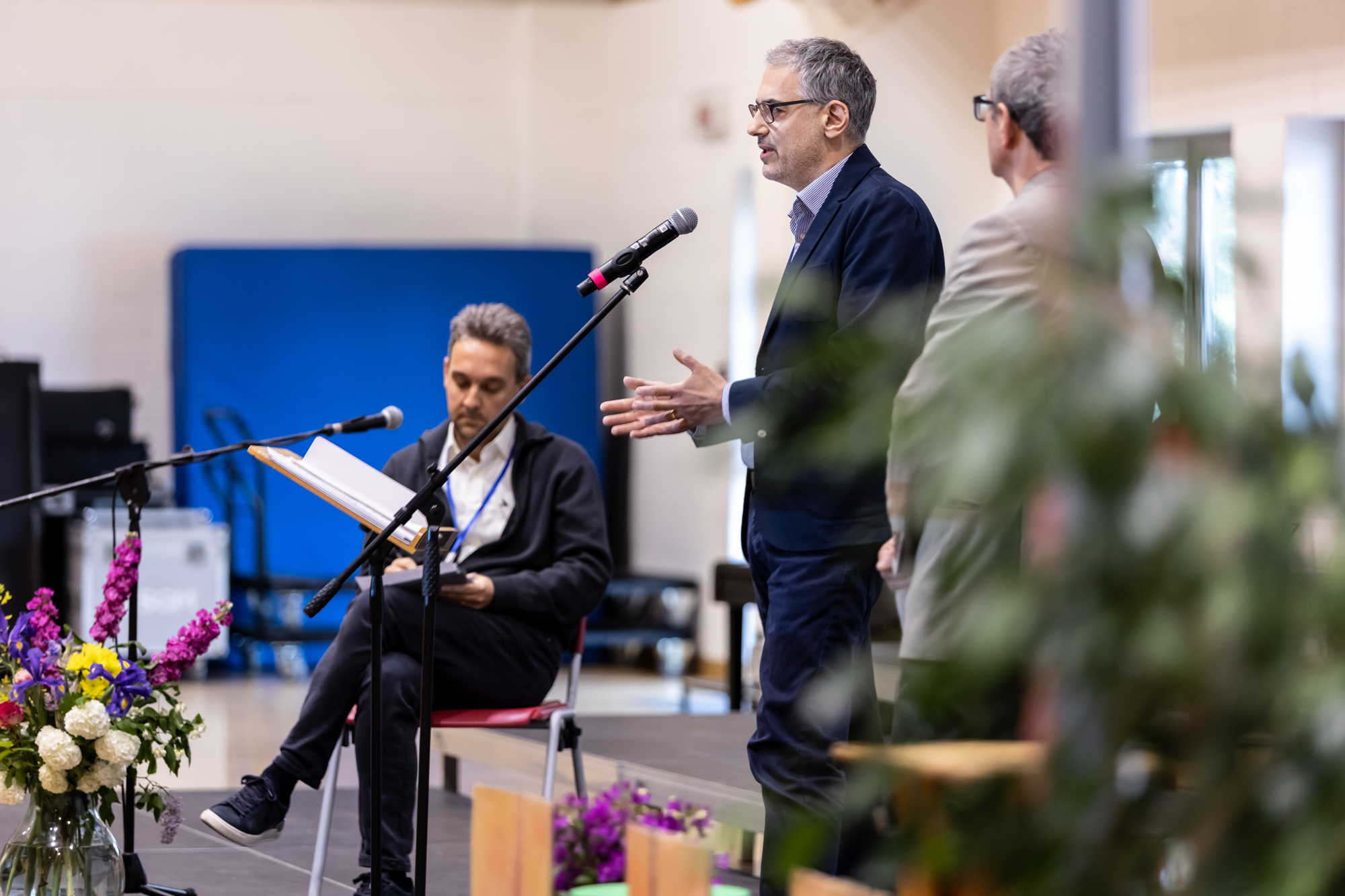
Want more?
Get more insight into the conference by studying the graphic recording, watching the follow-up video and checking the photo gallery below.
